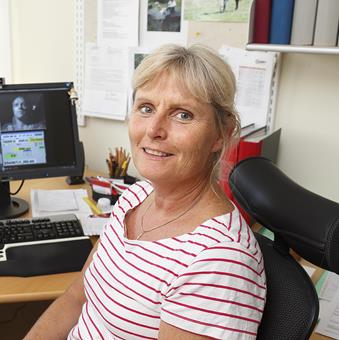< Projects

Autonomous Shuttles for ALL – AI, Public Transportations, and People with Disabilities (ASALL)
Autonomous vehicles are frequently used as one of the foregrounding examples of how AI – Artificial Intelligence, and people will come together in everyday life. It is a powerful example as it highlights AI as an autonomous technology, and how AI is interwoven with our physical and social world – in this case in shuttles and collective transportations. While there is a growing body of technical research on autonomous vehicles, less is known about the use of these physical-digital technologies in practice. Motivated by this need, we will explore these entanglements of AI and people in our everyday. Our specific research objective is to focus on people with cognitive disabilities, and their abilities to interact with such autonomous vehicles. We will explore this in the context of the implementation and use of autonomous shuttles in Linköping. The project aims to identify the issues children with ID have when using the autonomous bus service. To remedy these issues, the project will make proposals for a redesign of the service to improve the experience for users with cognitive disabilities. The applied aim of the project will be a base to test and refine theories from disability research, informatics, cognitive science, and human factors in traffic research. The new knowledge is essential to ensure that future operation of automated busses is designed in a way, so it enables use for persons with specific needs. This will only be a reality if we identify barriers and develop and evaluate the proposed solutions.
Start: 1 September 2021
End: 1 September 2023
Innovative Collaboration Project (ICP)
Keywords
disability, transport, autonomous shuttles, accessibility, design for all
Universities and institutes
Linköping University
Umeå University
External partners
Swedish National Road and Transport Institute (VTI)
Project members

Henrik Danielsson
Professor
Linköping University

Anna Anund
Professor
Linköping University, Research Director at Swedish National Road and Transport Research Institute (VTI)

Mikael Wiberg
Professor
Umeå University

